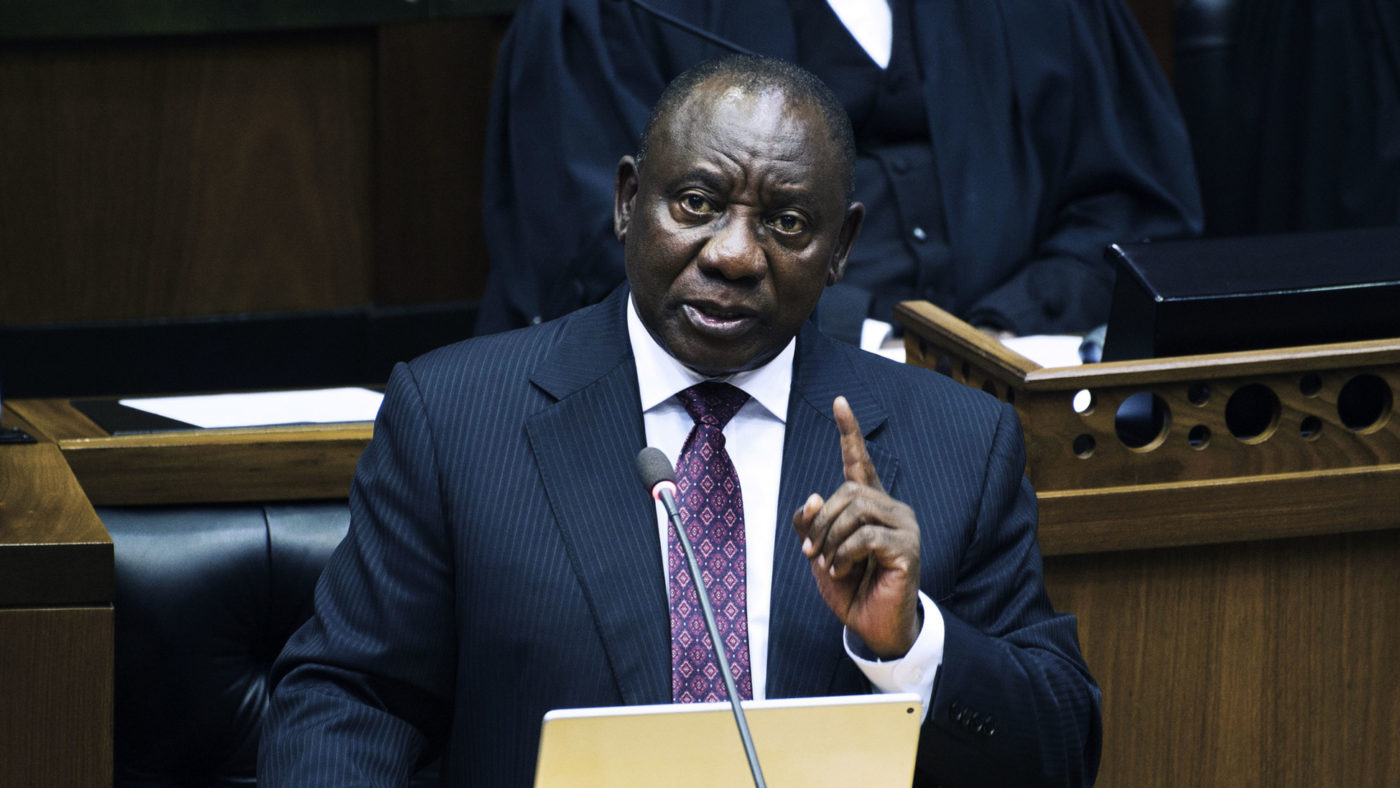On February 27, the South African National Assembly set in motion a process to amend that country’s Constitution so as to allow for the expropriation of land without compensation. If implemented, the measure will destroy the political settlement that allowed for a peaceful transfer of power from the white minority to the black majority in 1994 and precipitate economic collapse in Africa’s most developed country.
South Africa’s leaders appear to be relaxed about the moral problems and practical risks that the land grab entail. Western nations, who did their utmost to bring the current government to power, should make those risks felt by terminating aid and, if need be, denying future multilateral loans.
When the National Party of F.W. De Klerk, South Africa’s last white President, handed over the reins of power to the African National Congress led by Nelson Mandela, the nation’s first black President, it did so under a set of assumptions.
First, it assumed that the fall of the Berlin Wall killed off the notion of Marxism as a viable form of government for good. Second, it assumed that the Constitution, which the current leader of South Africa, Cyril Ramaphosa, helped to write and continues to call his nation’s “birth certificate,” contained iron-clad protections of property rights. Third, it assumed that South Africa would be loath to squander the goodwill of the international community by turning its back on that pinnacle of progressive achievement, a well-functioning multi-racial democracy on a continent with a long history of accomplishing the opposite.
The first assumption proved wrong. Unfortunately no number of catastrophic failures and atrocities – from Soviet gulags and Chinese laogai to Venezuelan prisons and Zimbabwean torture camps – will ever prevent its periodic reappearance.
The second assumption is being put to the test. The courts will have to decide if the land-grab – under which all land in South Africa will fall under the custodianship of the state that can, if it pleases, lease it back to the people – requires a two-thirds or three-fourths majority in the National Assembly. The ANC together with its Maoist ally, Julius Malema’s Economic Freedom Fighters, possess the former. They do not command the latter. Yet.
Section 74(1) of South Africa’s Constitution specifies that the country’s “foundational values” cannot be amended unless supported by 75 per cent of the National Assembly and six of the provinces in the National Council of Provinces. So, much will depend on the Constitutional Court, where the matter is undoubtedly heading. The World Justice Project defines rule of law as a state of affairs in which the “laws are clear, publicised, stable, and just; are applied evenly; and protect fundamental rights, including the security of persons and property.” Is the rule of law a fundamental value for South Africa? And if it is, does it include upholding property rights? The Constitutional Court has ruled against the government on occasion, but it would be a mistake to assume that South Africa’s highest court see sense here.
That is why the third assumption comes into play. South Africa’s government is clearly impervious to moral case against the land grab. Most claims of the previously dispossessed South Africans have already been settled by an extensive and expensive program of land and financial restitution, and plenty of land changed hands after the end of apartheid through normal market transactions. Not even the economically deleterious consequences can put them off. South Africa’s northern neighbour, Zimbabwe, recently implemented a program of land expropriation without compensation, leading to one of the most spectacular economic implosions in recorded history that wiped out half a century of economic growth. As ever, the Marxist gang running South Africa has responded that this time it will all be different. It will not. The laws of economics will not be suspended in the case of South Africa.
The West is a major sponsor of the South African government. The United States alone has funnelled half a billion dollars of taxpayer money to South Africa in 2016 alone. The advocates of US aid like to claim that foreign aid buys America good will in the recipient nations. If it offers any leverage, now is the time to use it. South Africa must be told – explicitly and firmly – that any further moves toward land expropriation without compensation will result in immediate termination of all US aid. Moreover, the US government should make it clear that it will use its dominant position in the World Bank and the International Monetary Fund to deny South Africa all future loans unless it maintains its commitment to property rights.
The United States has dealt in a similar fashion with Zimbabwe. There is no reason why a similar corrective should not be administered to South Africa before that country becomes yet another African failed state.


